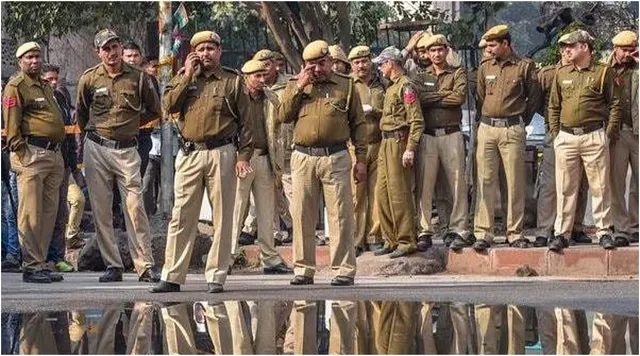- By Shubham Bajpai
- Mon, 24 Nov 2025 07:10 PM (IST)
- Source:JND
In a first, Delhi Police has invoked Section 356 of the Bhartiya Nagrik Suraksha Samhita (BNSS) Code to frame charges and initiate the trial of the absconding accused in serious cases, the officials said on Monday.
Under the section, charges have been framed against Jitender Mahato, who was absconding for months after killing his former employer, Ramesh Bhardwaj (68). Both Mahto and Bharadwaj are residents of Delhi.
What is Section 356 of BNSS?
The section, when invoked by the court, allows the police to frame charges against the accused, who is absconding. Based on the charges, the trial can also be initiated in the accused's absence.
The section stands to address a long-standing gap in the older Code of Criminal Procedure (CrPC), under which serious trials could not proceed without the presence of the accused.
What is the case?
Speaking about the case, Deputy Commissioner of Police (Outer North) Hareshwar Swami said that Bharadwaj's missing case was registered on January 29 this year after his daughter filed a complaint.
She had claimed that Bharadwaj had not returned home since leaving for Narela on his scooter the previous day. Suspecting foul play, the police immediately began searching for Bhardwaj's former servant, Mahato, who had disappeared the same day.
Police learned that Bhardwaj had received Rs 4.5 lakh as part payment for the sale of a plot. Moreover, he was last seen with Mahato. The witnesses also confirmed that Bhardwaj frequently visited Mahato's rented house, the officer said.
The police, subsequently, launched a massive manhunt in several areas, including Azadpur, Mukundpur, Narela, and Rohini, to find the accused. The call detail records (CDR), activity patterns, and location data analysis failed to identify the suspect.
The police resorted to digital surveillance after failing conventional leads, and on February 12, they tracked Mahato's son, Abhishek, alias Vishal, through his Instagram activity.
19-year-old Abhishek was interrogated, upon which he allegedly confessed that his father murdered Bhardwaj on January 28 and, with his help, disposed of the body.
Abhishek claimed that the deceased's son, Luv Bhardwaj, who had a long-standing dispute with his father, was also involved in the crime.
Based on Abhishek's revelations, police recovered Bhardwaj's decomposed body, which was stuffed in a sack, from a city drain.
While Bharadwaj's missing mystery was solved, Mahato continued to evade arrest despite numerous search operations. On March 25, a non-bailable warrant was issued against him, and the court declared him a fugitive on July 11.
The police then filed a chargesheet on August 25 and sought permission to proceed with the trial in the accused's absence.
The court then invoked Section 356 of the Bhartiya Nagrik Suraksha Samhita (BNSS), a new provision that empowers the court to investigate, frame charges, and prosecute proclaimed offenders in serious cases. Charges were also framed under relevant sections of the Bartiya Nyay Samhita. The order, passed on November 18, is the first use of the BNSS provision in Delhi.
(With PTI Inputs)

